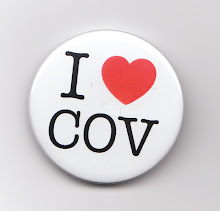
Meet Up is an online social networking tool which helps users to find or create group meetings in their area. The concept differs to traditional social networking somewhat in that it encourages users to use their system in order be able to facilitate social networking offline, in real life.
It is currently the world's largest network of local groups. There are currently 5.7 million members using the service that make up 58,936 local groups in 11,506 different cities. The service address the issue as to whether the internet has added value to our lives. For example while the internet has made us given us social networking, where we can communicate instantly with people from all over the world, has it made us more or less social in the real world.
Are we becoming more accustomed to communicating through new media than face to face and is it starting to detract from the idea of community and conversation? This is why I think that this service is so important. It encourages people to get off of social networking and socialise in specific interest groups locally, keeping the art of conversation alive and well.
Meetup has the following manifesto which it encourages users to sign up to via its website:
Meetup manifesto.
Let's exercise our human right of assembly. Let's exploit it big-time.
Let's use the Internet to get people off the Internet.
Let's bring back the handshake. The verbal debate.
The smile. You know, some good ol' face-to-face, eye-to-eye contact.
When people get together amazing things happen.
They advocate, argue, learn, laugh and share.
Let's be a group. Let's be a real group.
Groups have a history of making history. People unite, motivate, activate and mobilize.
Groups give us the power to face a health crisis, start a political movement, pursue a passion, launch a business, and turn strangers into friends. To be bigger than ourselves.
Let's step away from our screens for a moment.
Do without the PC, the TV and the phone. People are more powerful than pixels. A real group can beat up a virtual group any day of the week.
Let's find the others. The ones that want the same thing.
Let's meet in real time, in real places, and make a real difference.
Let's Meetup
Meetup understand how the internet is such an important tool in bringing people together and utilises this, however they feel even more can be achieved by meeting face to face. It therefore creates something that combines these two ideas and also brings in the idea of specialist meeting groups.
Rather than just have meetings based on location, Meetup allows you to find groups in your that area that meet based on topics that interest you. For example if I wanted to improve my photography skills I would search for photography interest groups and enter my postcode, which actually gave me around 20 groups within five miles.

I think that this is a great idea because although social networking can bring us closer to one another, it rarely does and our relationships with one another stay at that level. This encourages sociability and offers a wide range of opportunities to people all over the world. In terms of expanding the idea into different countries this is definitely something with the potential to work.
There are already 11,506 cities participating and if it is a success there then why couldn't it be somewhere else? All that is required is an internet connection, so for countries where a high proportion of the population have internet access there is an opportunity to get involved. This is an idea that has continued to grow since the concept was created in 2001 and I am hoping that it will continue to do so.









